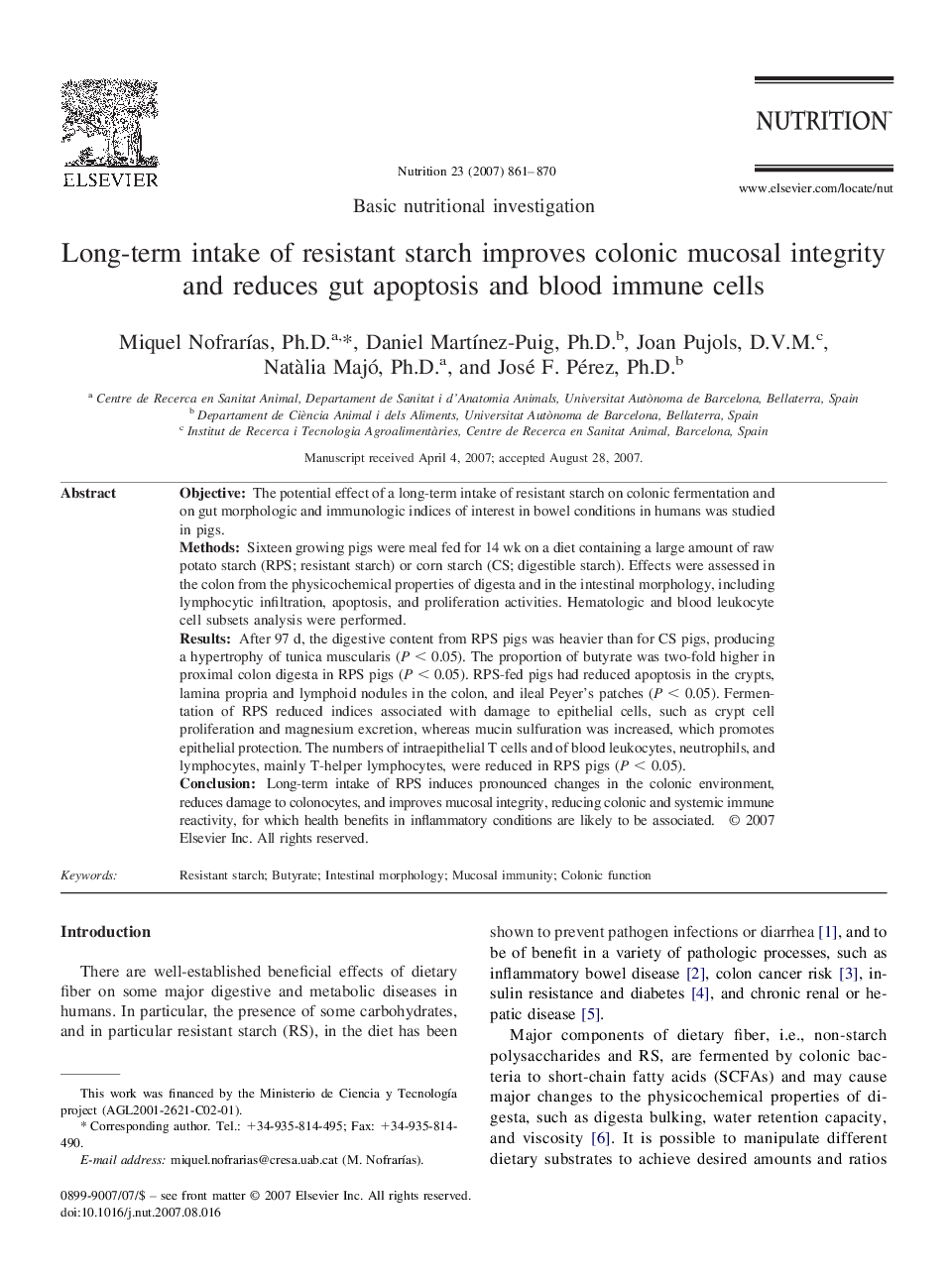| Article ID | Journal | Published Year | Pages | File Type |
|---|---|---|---|---|
| 3277361 | Nutrition | 2007 | 10 Pages |
ObjectiveThe potential effect of a long-term intake of resistant starch on colonic fermentation and on gut morphologic and immunologic indices of interest in bowel conditions in humans was studied in pigs.MethodsSixteen growing pigs were meal fed for 14 wk on a diet containing a large amount of raw potato starch (RPS; resistant starch) or corn starch (CS; digestible starch). Effects were assessed in the colon from the physicochemical properties of digesta and in the intestinal morphology, including lymphocytic infiltration, apoptosis, and proliferation activities. Hematologic and blood leukocyte cell subsets analysis were performed.ResultsAfter 97 d, the digestive content from RPS pigs was heavier than for CS pigs, producing a hypertrophy of tunica muscularis (P < 0.05). The proportion of butyrate was two-fold higher in proximal colon digesta in RPS pigs (P < 0.05). RPS-fed pigs had reduced apoptosis in the crypts, lamina propria and lymphoid nodules in the colon, and ileal Peyer’s patches (P < 0.05). Fermentation of RPS reduced indices associated with damage to epithelial cells, such as crypt cell proliferation and magnesium excretion, whereas mucin sulfuration was increased, which promotes epithelial protection. The numbers of intraepithelial T cells and of blood leukocytes, neutrophils, and lymphocytes, mainly T-helper lymphocytes, were reduced in RPS pigs (P < 0.05).ConclusionLong-term intake of RPS induces pronounced changes in the colonic environment, reduces damage to colonocytes, and improves mucosal integrity, reducing colonic and systemic immune reactivity, for which health benefits in inflammatory conditions are likely to be associated.
